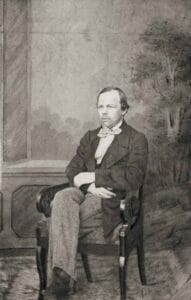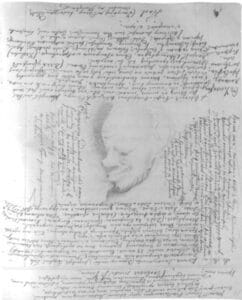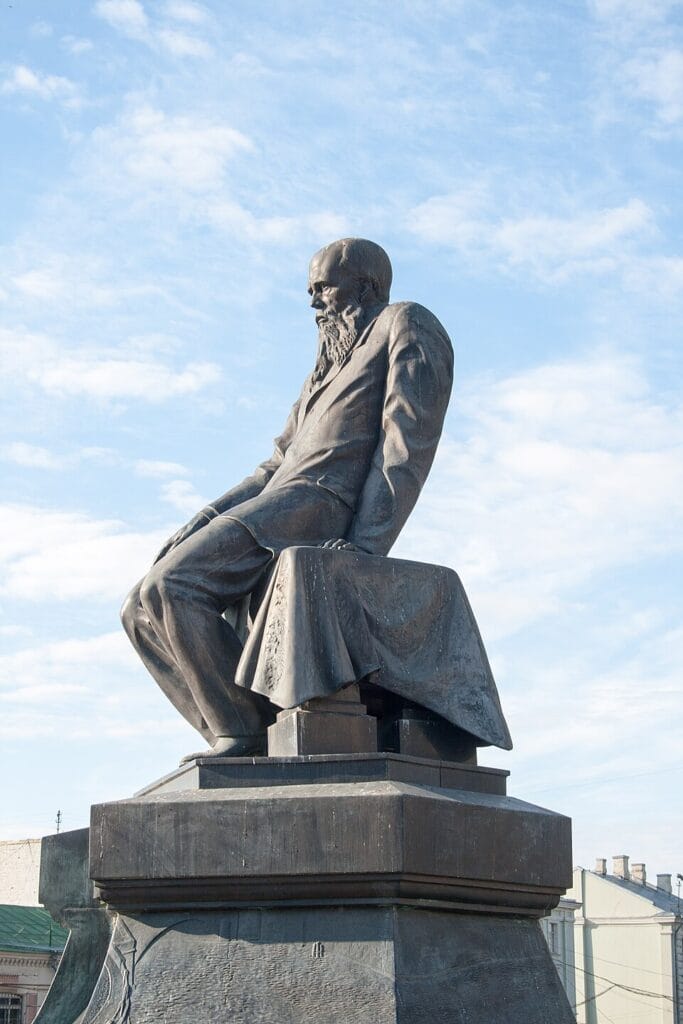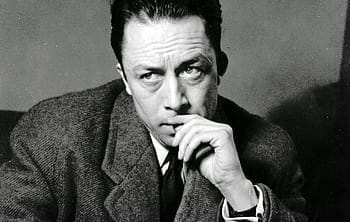The Philosophy of Fyodor Dostoevsky: Depths of the Human Soul
Fyodor Dostoevsky is not just a name in Russian literature. He is one of the most piercing voices ever to explore the soul of humanity. His writing does not merely speak. It trembles. It weeps. It stares into the eyes of suffering and still dares to believe in redemption. Dostoevsky’s philosophy is not shaped by abstract theorizing. It was carved from experience, from long nights of doubt, from grief, prison walls, illness, love, and faith.

He never offered tidy conclusions. Instead, he placed readers in the raw wilderness of life. He made them feel. He made them question. And he made them understand that the soul is both the battlefield and the temple of human experience.
The Soul Shaped by Fire: Dostoevsky’s Life and Its Imprint
Dostoevsky was born in Moscow in 1821. His father, a stern military doctor, ruled their home with fear. His mother, more tender, died when he was just sixteen. Two years later, his father died suddenly. Some say he was murdered by his own serfs. That rumor haunted Dostoevsky. He lived with guilt and fear that perhaps he had wished for his father’s death. This conflict between love and hate for authority appears again and again in his work.
In 1849, Dostoevsky’s life shattered. He was arrested for his association with a group of radical intellectuals. He was thrown into prison. Then came the mock execution. Soldiers raised rifles. Dostoevsky was seconds from death. But the Tsar had arranged a last-minute pardon. The horror of that moment never left him. He wrote later, “To be a man condemned to death and to wait… that’s something that shakes the soul.”
He was then sent to Siberia. Four years in a brutal labor camp. Four more years in military service. There he lived among criminals. Murderers. Thieves. Men society had thrown away. And yet, he found dignity among them. He saw what he called the divine spark in every soul. Even in filth and madness, he believed that grace could reach a man. This belief became central to his thought.
Dostoevsky returned from Siberia a changed man. His early work had been influenced by European rationalism and socialism. But now he turned to the Russian Orthodox faith. Not blindly. He struggled with God. He doubted. He wept. But he chose to believe.
In The Brothers Karamazov, Dostoevsky gives voice to his own deepest questions through the character of Ivan. Ivan cannot accept a world where children suffer. He says, “I don’t want harmony… I want to return my ticket.” He cannot worship a God who allows such evil.

This question is not solved in the novel. It is not answered with logic. Instead, Dostoevsky gives us Alyosha, Ivan’s brother. Alyosha does not argue. He loves. He forgives. He believes in the power of compassion. For Dostoevsky, faith is not about certainty. It is about the courage to love in the face of suffering.
The Freedom to Fall: Choice and Responsibility
Dostoevsky believed that man is free. Terrifyingly free. In Notes from Underground, the narrator spits on logic and science. He says, “Man needs only independence, whatever may come of it.”
He warns us that reason alone cannot guide us. We are not just machines. We desire. We sin. We rebel. And we must be free to do so, even if that freedom leads to ruin. This is the paradox Dostoevsky explores. Without freedom, we lose our humanity. But freedom without love and conscience becomes destructive.
In Demons, a group of radicals tries to remake society without God. They believe that killing in the name of progress is justified. But their ideals collapse into chaos. Through them, Dostoevsky shows the horror of ideas disconnected from moral grounding.
Love and Redemption: The Healing Wound
Dostoevsky’s understanding of love is not romantic. It is fierce, raw, and redemptive. In Crime and Punishment, Raskolnikov kills an old woman to test his theory of greatness. But guilt crushes him. Only Sonya, a poor and devout prostitute, reaches him. She reads him the story of Lazarus. She walks beside him through shame. And in her love, he begins to heal.
Dostoevsky believed that only love rooted in suffering could save the human soul. In The Idiot, Prince Myshkin tries to live with Christlike innocence. But the world mocks him. Uses him. And in the end, he collapses into madness. The novel asks, can pure goodness survive in a broken world?
Dostoevsky never glorified pain. But he saw in suffering a strange gift. In his own life, prison stripped him bare. Illness humbled him. Poverty drove him to despair. But in that darkness, he found what he called a deeper realism. A view of the soul that did not deny evil, but also did not give up on beauty.
Father Zosima, in The Brothers Karamazov, says, “What is hell? I maintain that it is the suffering of being unable to love.” For Dostoevsky, hell is not just fire. It is the absence of connection, the refusal to reach out. And salvation is found not through comfort, but through love that survives agony.
In his own life, love came late. His second wife, Anna, was his stenographer. Young, kind, and full of faith. She helped him manage his finances. She gave him stability. And most of all, she believed in him. Their marriage became a sanctuary. It is no accident that his final novels, written during this period, are also his most mature.
The Mirror of His Characters: Philosophical Themes in Fiction
Each of Dostoevsky’s major novels is a philosophical investigation. Not in the abstract. But through people. Through voices that clash and question and bleed.
In Crime and Punishment, the theme is moral relativism. Can one kill for a higher good? Raskolnikov thinks so. But his conscience says otherwise.
In The Idiot, the question is innocence. Can purity survive corruption? Myshkin tries. He fails. But his presence still awakens others.
In Demons, the issue is political utopia. Can revolution create paradise? Dostoevsky says no. Without God, such dreams end in blood.
In The Brothers Karamazov, all his themes converge. Faith. Doubt. Freedom. Evil. Love. Ivan’s logic. Alyosha’s grace. Dmitri’s passion. Each brother is a fragment of Dostoevsky himself.
Quotations That Capture His Vision
“The mystery of human existence lies not in just staying alive, but in finding something to live for.”
“Much unhappiness has come into the world because of bewilderment and things left unsaid.”
“Taking a new step, uttering a new word, is what people fear most.”
“The greatest happiness is to know the source of unhappiness.”
“Love in action is a harsh and dreadful thing compared to love in dreams.”
Dostoevsky never wrote a book of philosophy. He didn’t systematize. He didn’t define terms. Yet, in his stories, he gave us a philosophy more real than many treatises. It is a philosophy soaked in blood, in dreams, in sleepless nights. It is born from the wounded heart and the searching soul.
He was a man of faith, but not of easy faith. His belief in God was not born from comfort. It was born from collapse. From nights in a freezing prison cell. From epilepsy that could strike at any moment. From the smell of death and the weight of guilt. And still, he believed.
The Weight of Guilt and the Longing for Forgiveness
Few writers understood guilt like Dostoevsky. For him, guilt was not just legal. It was existential. It was spiritual. Guilt is what happens when the soul remembers it was meant for something higher.
Raskolnikov, in Crime and Punishment, kills not out of greed, but from a warped idea of greatness. But the moment he kills, his soul fractures. He walks through the novel like a ghost. He is not in prison, but he is not free either. Sonya, the gentle soul, does not argue with him. She simply shares his burden. And through her, he begins to remember his humanity.
In The Brothers Karamazov, Dmitri faces false charges. But he does not scream innocence. Instead, he accepts suffering. He believes he deserves it, not for this crime, but for other sins. He says, “I am guilty of everything. Everyone’s sin is mine too.” This is not madness. It is spiritual awakening.
Dostoevsky believed that the path to healing begins with confession. Not just of deeds, but of pride. Of arrogance. Of indifference. In a world that teaches us to protect our image, he invites us to bow our heads.
The Paradox of Faith
Dostoevsky never paints faith as easy. It is not a light switch. It is a fire that must be tended every day. His characters believe and doubt in the same breath. That is what makes them real.
Alyosha, the youngest Karamazov brother, is perhaps the clearest image of faith. But his faith is tested. He sees his spiritual father Zosima mocked. He sees cruelty and confusion. He is tempted to despair. But he holds on. Not because he has all the answers. But because he believes love is worth it.
Father Zosima’s teachings are central to Dostoevsky’s mature vision. Zosima says, “Each of us is guilty before all and for all.” This is not theology for the mind. It is theology for the heart. It means that we are connected. That no suffering is separate. That if one child cries, we are all responsible.
Dostoevsky’s God is not distant. He is not a judge sitting on a throne. He is in the suffering child. In the condemned man. In the eyes of a sinner who dares to hope. This vision is deeply Christian. But not the kind that preaches rules. It is the kind that weeps beside the fallen.
Dostoevsky foresaw the crisis of modernity. He saw a world rushing toward progress and forgetting the soul. In Demons, the young revolutionaries speak of justice and reason. But their words are hollow. They are driven by hate, not love. They want to build heaven by killing those who disagree.
He did not oppose progress. But he warned against progress without conscience. He feared a world where man becomes a function. A machine. A statistic. A tool for the state or the market. For Dostoevsky, the soul cannot be programmed. It must be loved.
In Notes from Underground, the narrator mocks utopias. He says, “Even if man were placed in paradise, he would still break the rules, just to prove he is free.” That is the tragedy and the glory of being human. We are not predictable. We can choose love. Or cruelty. Faith. Or despair.
This freedom terrifies. It means no one can save us from ourselves. But it also means we are never fully lost. As long as we breathe, redemption is possible.
Beauty Will Save the World
One of Dostoevsky’s most quoted lines comes from The Idiot: “Beauty will save the world.” But what does that mean? Not surface beauty. Not fashion or fame. Dostoevsky meant the beauty of the soul. The beauty of sacrifice. Of compassion. Of a single human act that touches eternity.
Prince Myshkin tries to live by this beauty. He sees others with eyes of mercy. But the world sees him as a fool. A weakling. He is crushed by it. Yet in his wake, others begin to question their cruelty. To remember their hearts. This is what Dostoevsky believed. That even the smallest light can disturb great darkness.
Beauty, for him, is not decoration. It is revelation. It is the glimpse of something higher. Something eternal. And that glimpse is enough to keep a soul from falling.
Dostoevsky’s last novel, The Brothers Karamazov, is not just his greatest. It is his spiritual testament. Every theme he ever wrestled with finds a place here.
There is Ivan, the brilliant skeptic. His anger is righteous. His questions are sharp. He sees the suffering of children and cannot believe in God. But he cannot find peace in atheism either. He is torn. He breaks.
There is Alyosha, who does not answer Ivan with arguments. He answers with love. With presence. With patience. Alyosha is the answer not of the mind, but of the heart.
And there is Dmitri, the sinner who accepts his pain. Who says, “Let me be guilty. Let me suffer. But I will not hate.” In him, we see the miracle of repentance.
At the end of the novel, Dostoevsky gives us not resolution, but hope. The young boy Kolya stands with his friends at a grave. They speak of love. Of memory. Of life. And they make a vow to remain good, no matter what the world brings.
It is a quiet moment. But it is enough. It is his final prayer.
Why Dostoevsky Still Matters
We live in a time of noise. Of opinion. Of constant performance. Dostoevsky asks us to stop. To look inward. To feel. To wrestle. He does not ask us to be perfect. He asks us to be honest.
His philosophy is not for those seeking easy comfort. It is for those who have cried in the dark and still hoped. For those who have doubted and still wanted to believe. For those who have fallen and longed to rise.
He reminds us that the soul is not an illusion. That suffering can purify. That love can endure. And that every human being, no matter how lost, still carries the image of God.
Dostoevsky is not just read. He is lived. And when we let his words enter our hearts, we are changed.
Final Words
Dostoevsky does not offer answers. He offers struggle. He demands that we look into our own contradictions. He shows us people breaking and people forgiving. People doubting and still believing. He invites us to suffer, not as punishment, but as the price of being fully alive.

Fyodor Dostoevsky’s philosophy is not an argument. It is a cry from the soul. A cry that still speaks, still aches, and still hopes.
“To love someone means to see them as God intended them.”
This line captures everything. It is the lens through which Dostoevsky saw the world. Not as a place to be controlled or fixed. But as a sacred drama. Where every soul matters. Where every pain has meaning. Where even in the darkest hour, a hand may reach out.
We are not called to solve life. We are called to live it. To feel its weight. To embrace its mystery. And to love, fiercely, even when it hurts.
That is Dostoevsky’s gift. That is his challenge. And it still speaks.
Read an amazing article on Fyodor Dostoyevsky’s Five Principles of Personal Freedom by By Arthur C. Brooks



Hello! I know this is kinda off topic nevertheless I’d figured I’d ask. Would you be interested in exchanging links or maybe guest writing a blog article or vice-versa? My site addresses a lot of the same subjects as yours and I feel we could greatly benefit from each other. If you might be interested feel free to shoot me an e-mail. I look forward to hearing from you! Terrific blog by the way!
I really like your writing style, good information, thanks for posting :D. “He wrapped himself in quotations- as a beggar would enfold himself in the purple of Emperors.” by Rudyard Kipling.
I saw a lot of website but I think this one has something extra in it in it
In line with my observation, after a foreclosures home is available at an auction, it is common to the borrower to still have the remaining balance on the mortgage loan. There are many creditors who make an effort to have all service fees and liens cleared by the future buyer. Nevertheless, depending on specified programs, restrictions, and state legal guidelines there may be some loans which aren’t easily resolved through the shift of financial products. Therefore, the duty still falls on the customer that has obtained his or her property in foreclosure process. Many thanks for sharing your opinions on this site.